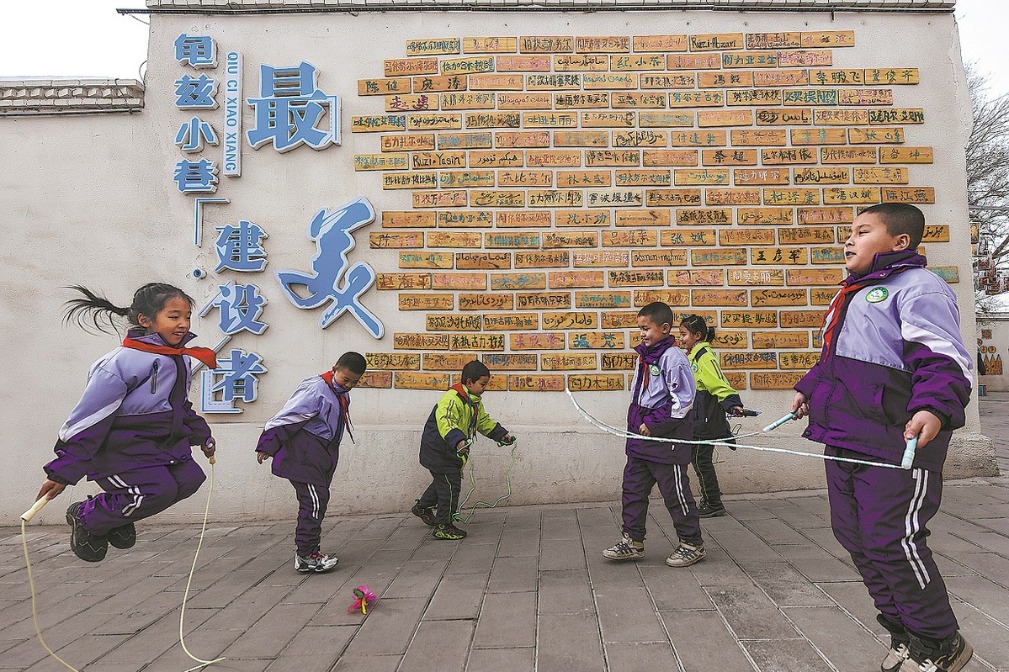Desert rangers transform Xinjiang one tree at a time

As a ranger with the Aiximan Patrol Station in Xinjiang Uygur autonomous region, Eshanjan Mutalif walks nearly 10 kilometers across the desert every day, patrolling hundreds of acres of restored land. He and his colleagues check drip irrigation pipes laid across the desert sands and protect the growing trees.
"Three years ago, the saxaul trees were just tiny saplings beneath my feet.
Now they've grown to three meters — much taller than me," said Eshanjan, who works in the Aiximan region of Awat county, Aksu prefecture.
"It takes 25 to 26 days to complete one round of irrigation for 9,000 acres (600 hectares) of desert," he said, adding that except in winter, they irrigate 20 to 27 hectares daily, and fix pipelines to ensure a 24-hour water supply.
Having memorized every slope, pipeline, and row of saxaul, Eshanjan has witnessed the transformation of the desert into a thriving green landscape with vast stretches of forests including saxaul, poplar, and oleaster.
After planting the trees, he said he had seen many wildlife such as foxes, wild boars, and hares. "I even encountered a wolf once. I was terrified, but it ran as soon as it saw me," he recalled.
Located on the northern edge of the Taklimakan Desert, the Aiximan area was once plagued by desertification, soil erosion and wetland degradation.
In 2021, Aksu prefecture launched an ecological restoration and desertification control project in the Aiximan region, aiming to create an ecological barrier along the desert's edge.
Jiang Lili, deputy director of the county's forestry and grassland bureau, said that it plays a crucial role in the ecological restoration and desertification control efforts in the Tarim River Basin, a key zone in China's northern desertification control belt.
Jiang said that the county harnessed recycled water resources from Aksu and Wensu county, utilizing artificial irrigation to establish an ecological protection forest.
"This not only purifies the water but also supports biological sand control by using recycled water," she said.
To date, Awat county has completed 10,667 hectares of artificial afforestation, the forest coverage in the Aiximan region has increased from 4.5 percent to 45 percent, according to Jiang.
"Our efforts have set a model for desert control, and it has become a flagship project for countering desertification along the edge of the Taklimakan Desert," Jiang said.
Awat county will continue to take a scientific and sustainable method to consolidate the achievements and committed to realizing harmonious coexistence between human and nature, she said.
- Cultural creations made by Chinese women with disabilities showcased at UN headquarters
- China-Europe conference advances vocational education, AI talent
- China completes 75% of summer wheat harvest
- China and South Africa strengthen defense ties at 10th meeting
- China-ASEAN trade grows 9.1%, boosting Guangxi's role
- 5.8-magnitude quake hits waters off Taiwan: CENC





































